Castro Fajardo Storms to Victory in 2025 World Triathlon Cup in Napier Showdown
David Castro Fajardo surges late to deny Brayden Mercer and Callum McClusky, clinching the 2025 World Triathlon Cup opener by a razor-thin margin.
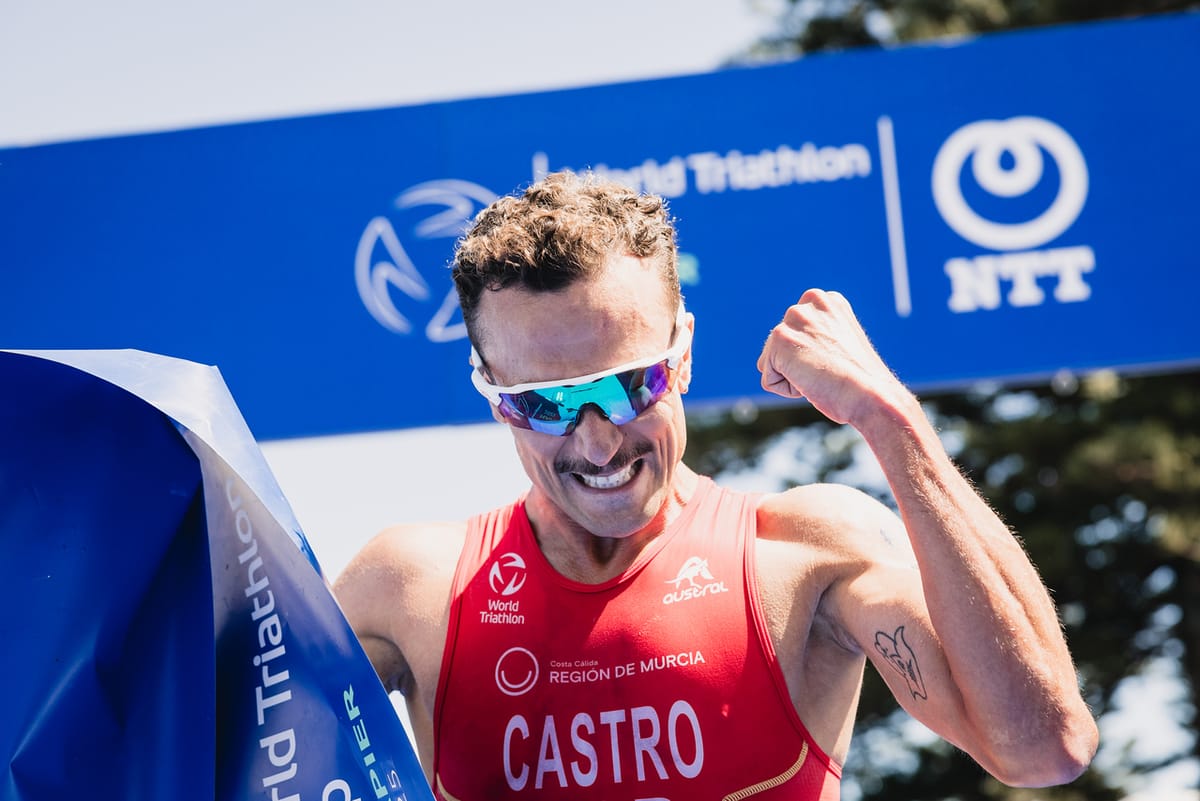
David Castro Fajardo turned back the clock with a devastating sprint to claim victory at the opening men’s World Triathlon Cup of 2025 in Napier, New Zealand, narrowly outdueling Australians Brayden Mercer and Callum McClusky in a finale that electrified the crowd. Crossing the line just two seconds ahead of the Aussie duo, Castro Fajardo proved once more that timing and tactics can trump age and adversity in elite triathlon.
Early Moves and Tense Moments in the Swim
From the first dive into the Pacific Ocean, it was clear the men’s race would produce a different dynamic from the women’s event earlier in the day. Nineteen-year-old Jack Crome of Australia seized the initiative in the moderate swell, powering his way to the front with a smooth, high-cadence stroke. Shoulder to shoulder with him were a handful of other strong swimmers, including Brayden Mercer (AUS) and David Castro Fajardo (ESP). If anyone hoped to replicate the women’s early break, the field refused to oblige, staying bunched as they neared the shore and hustled through T1.
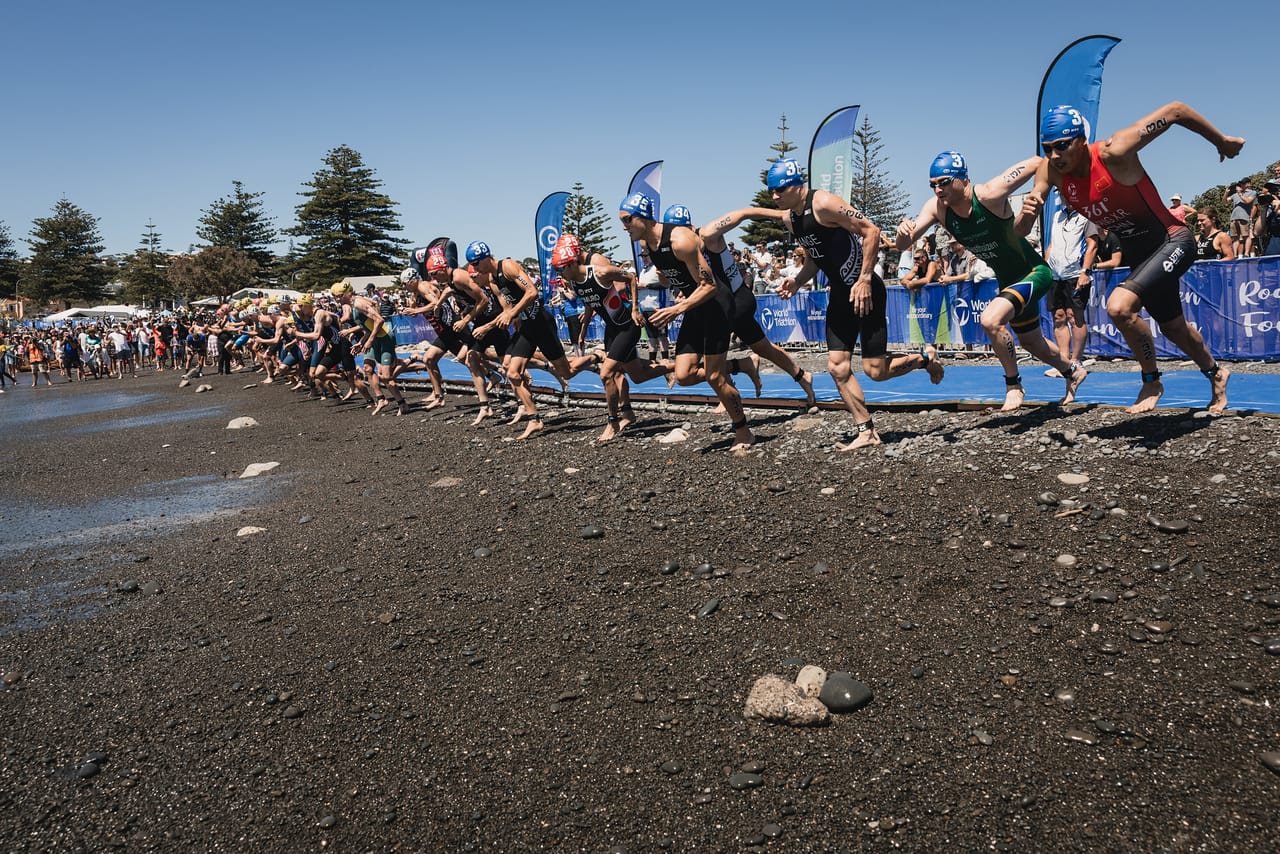
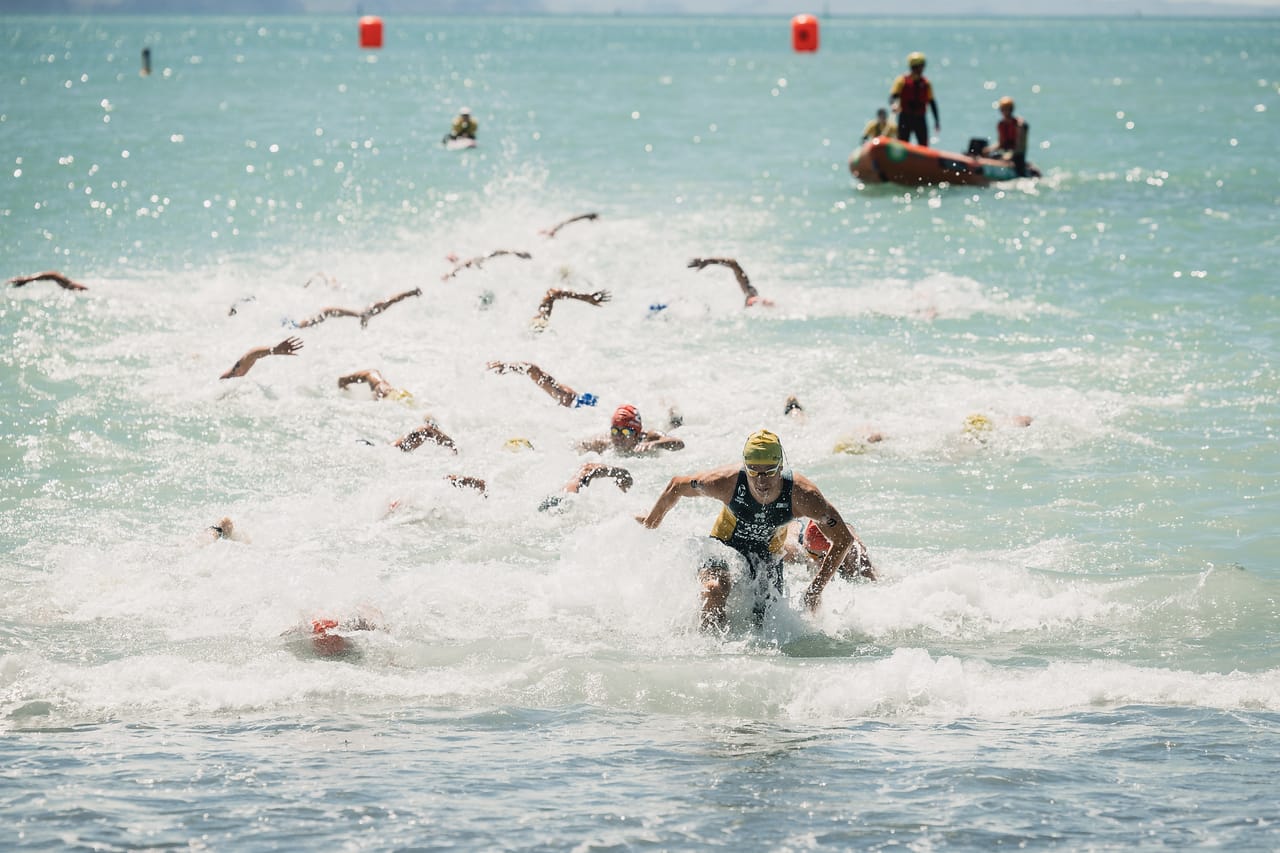
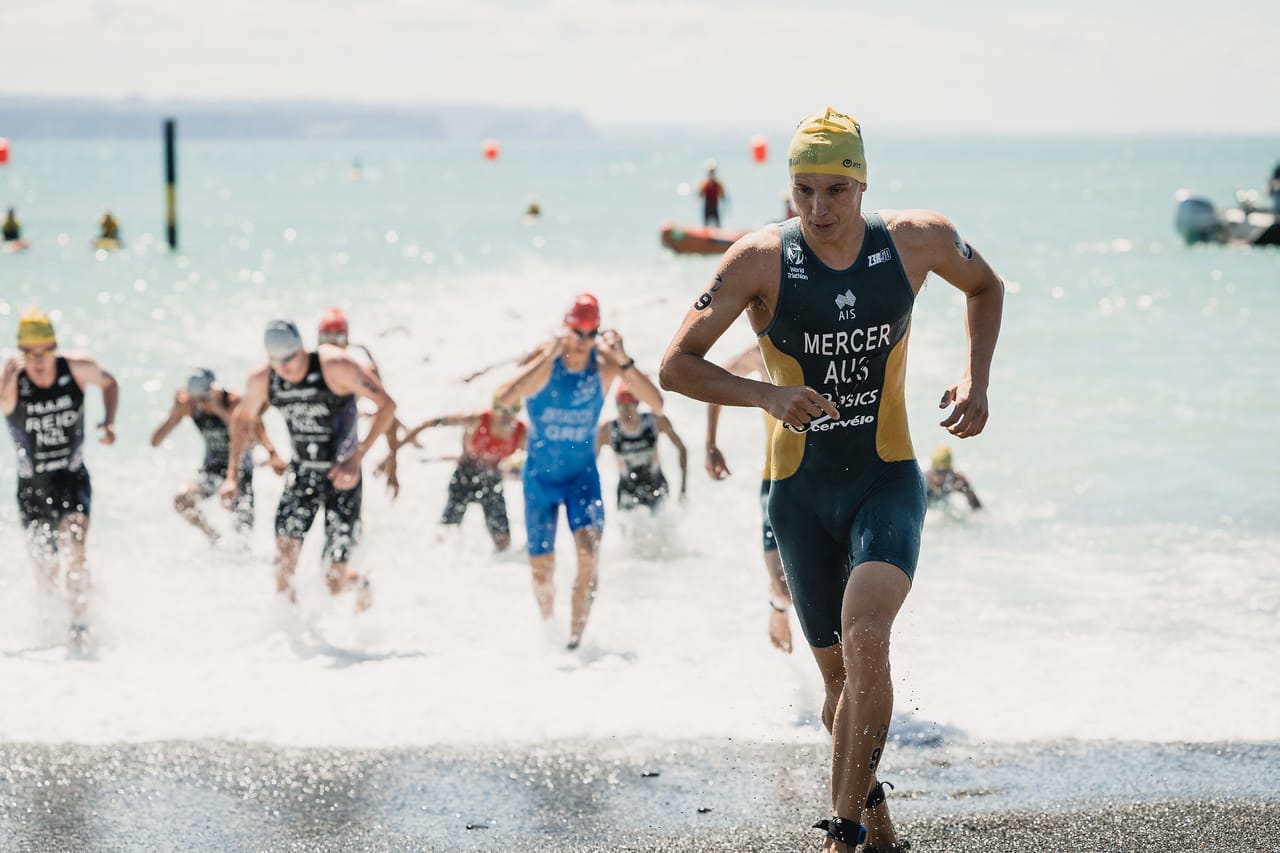
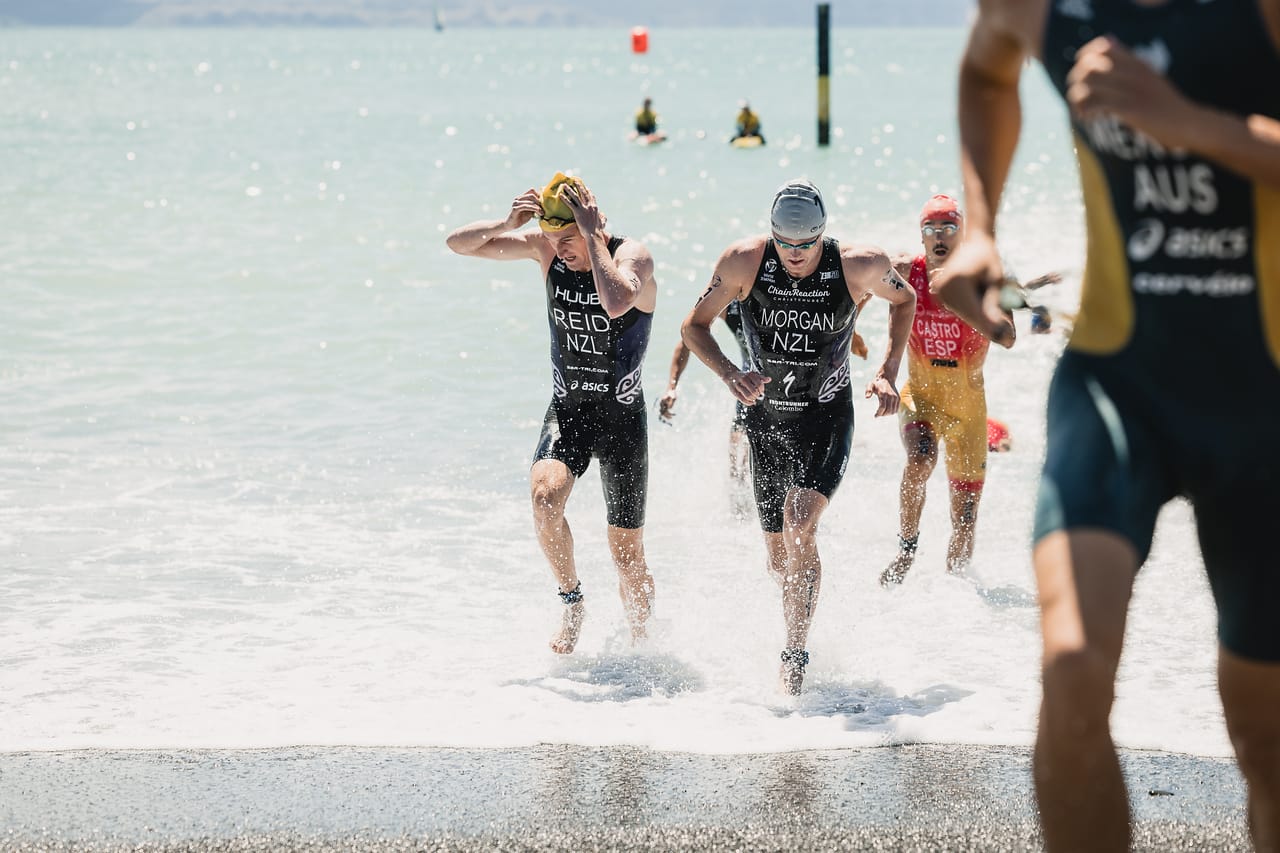
Despite the pace, few gaps opened, and around fifteen men emerged within seconds, with another dozen only a breath behind. That deep frontline set the stage for a strategic bike leg, where repeated attacks—and a little misfortune—would keep the pack on edge.
SRAM Mishap and the Disintegrating Breakaway
Once on two wheels, the plan for several riders was straightforward: force a small group off the front, thereby pressuring the strongest runners to work harder. A break did form briefly, thanks to Panagiotis Bitados (GRE), Tjebbe Kaindl (AUT), and local Kiwi Ivan Abele. Each seemed committed to staying clear; Bitados, in particular, turned heads by churning an enormous front chainring. But less than halfway through the 20-kilometre leg, Bitados’s SRAM shifting appeared to slip, derailing his chain at the worst possible moment. Scrambling to fix it, he watched valuable seconds vanish. That mechanical forced the break to dissolve and handed the chasing group a gift-wrapped chance to swallow the escapees.
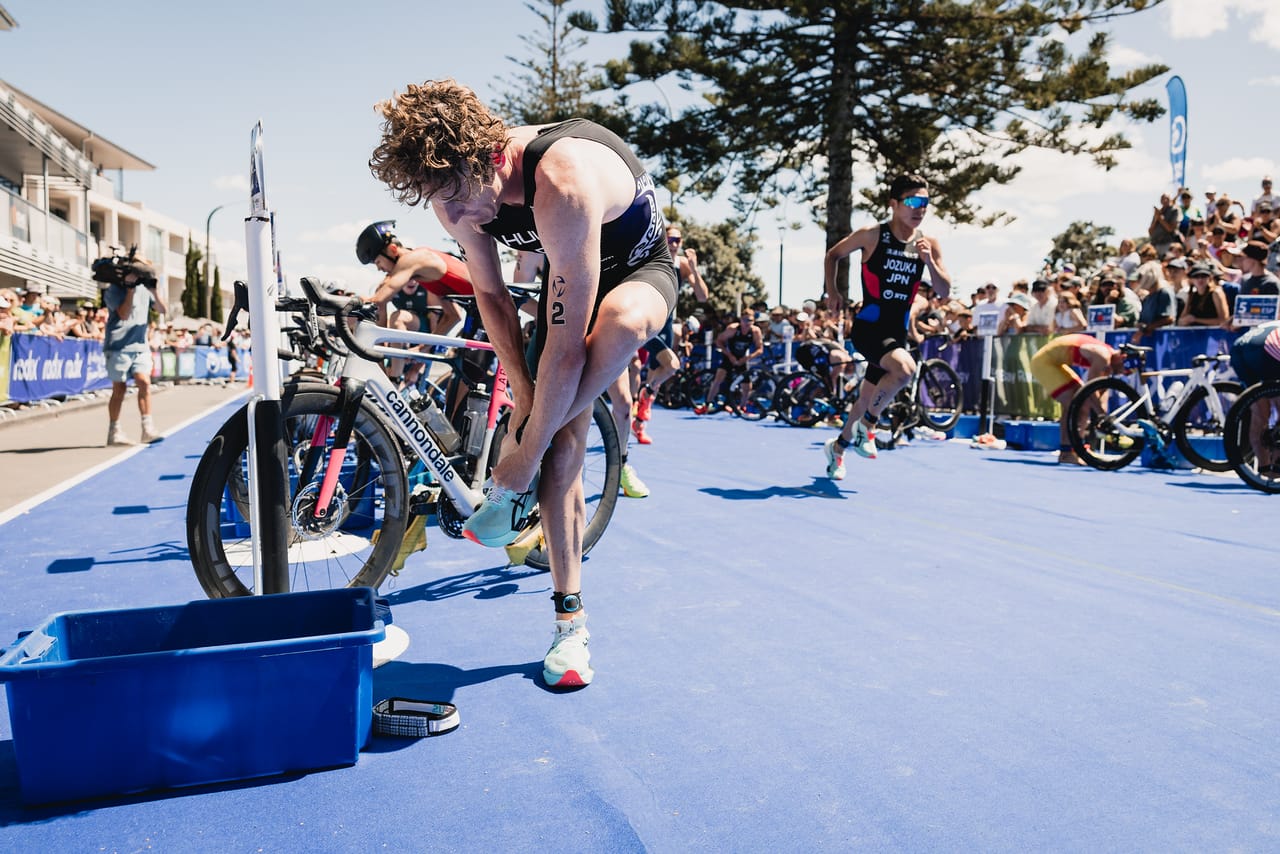
With the gap gone, nearly thirty men clustered together, making any further splits difficult. Sensing the danger of a mass run, four young New Zealanders—Gus Marfell, Henry McMecking, James Corbett, and Cameron Maunder—tried one last move on the final lap, cheered on by the hometown crowd. Though their boldness briefly stirred the peloton, a formidable cast of cyclists like Luke Willian (AUS) and Taylor Reid (NZL) helped ensure it all came back together before T2.
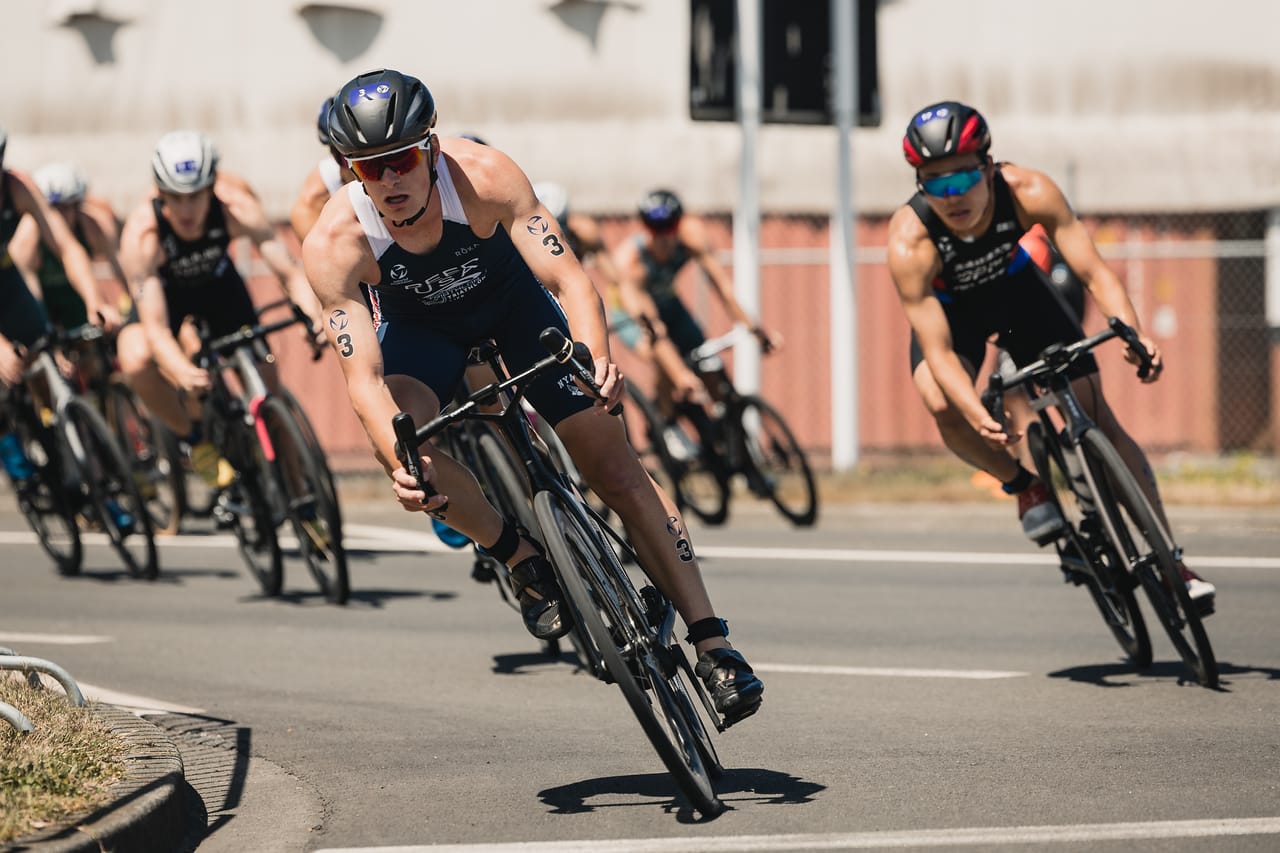
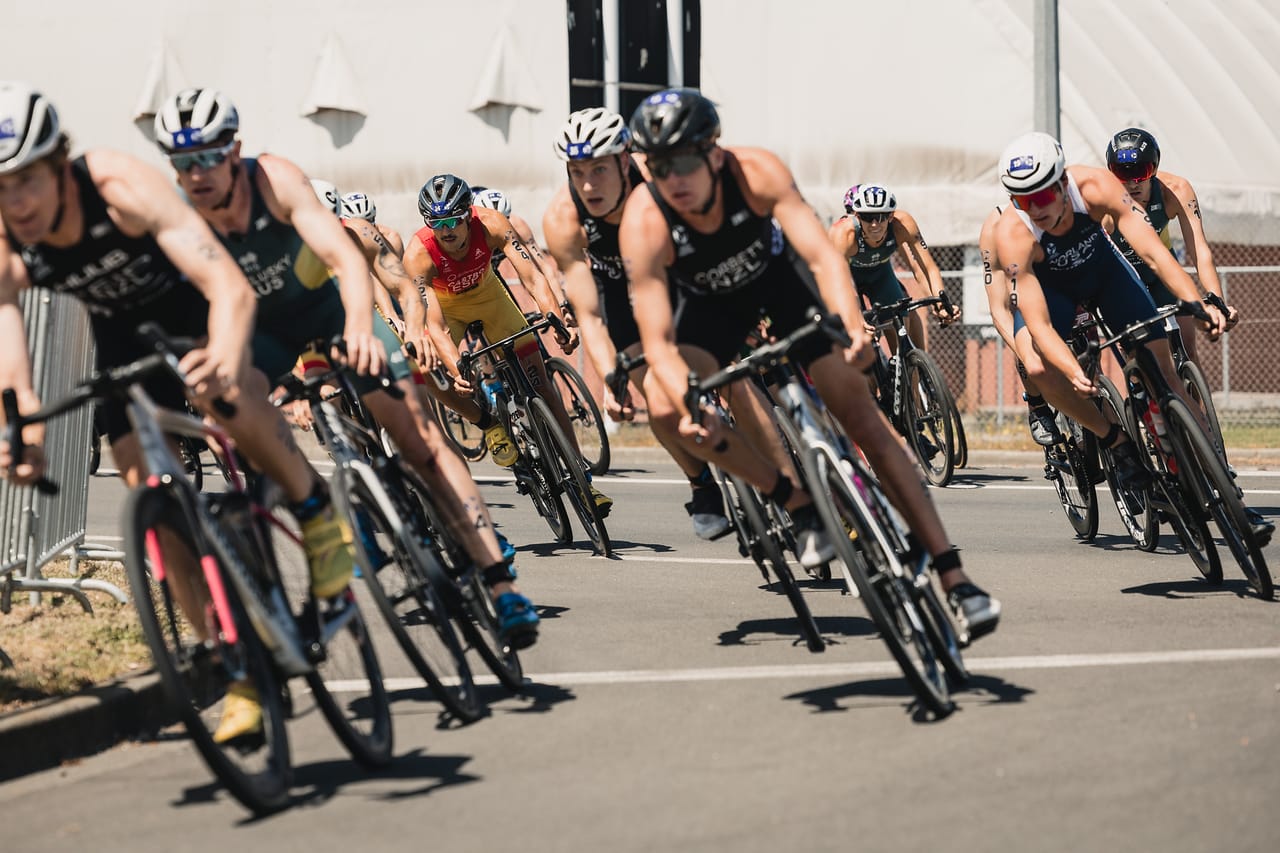
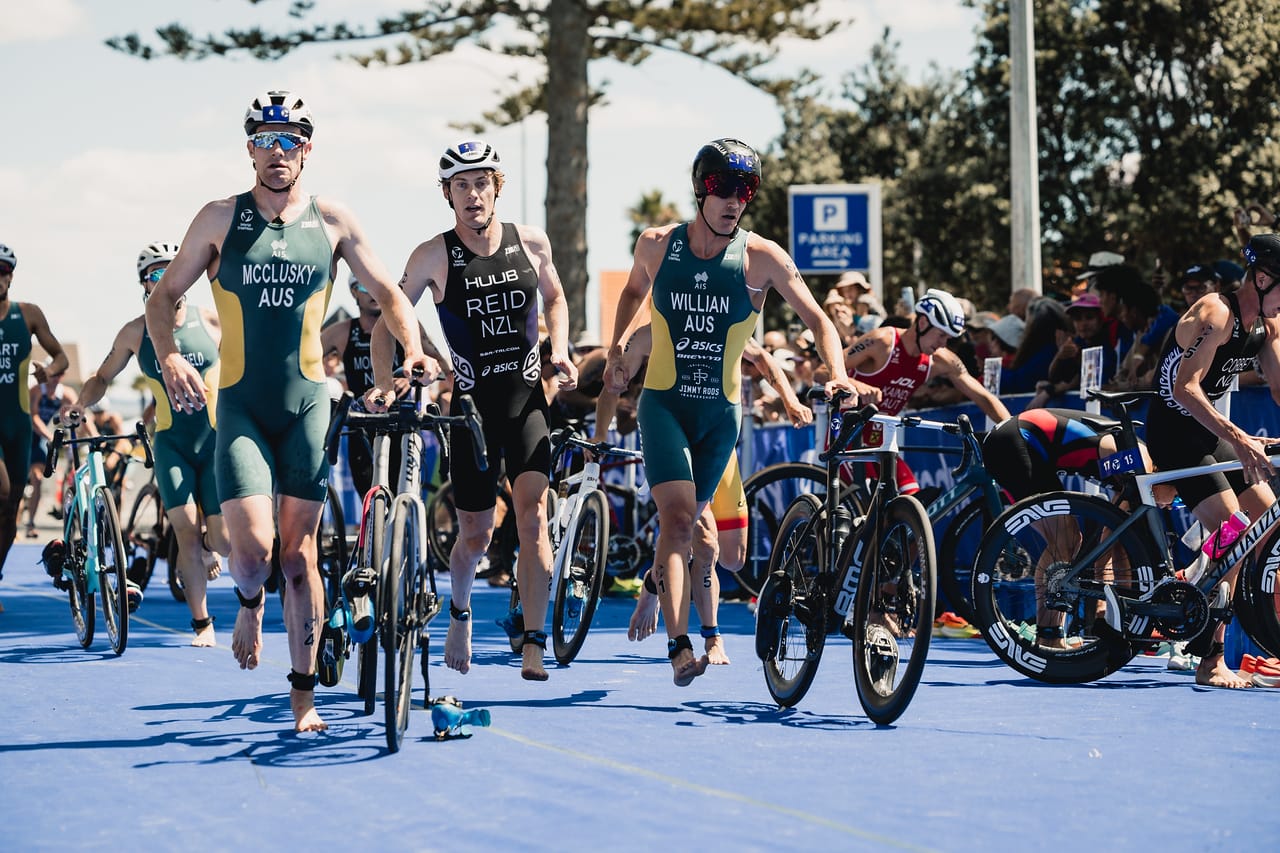
Amid the bike drama, Australia’s contingent remained a constant factor. Along with Mercer, Callum McClusky—last year’s Napier champion—and a string of others kept the massive pack honest. It was Mercer and the Australian debutant Crome who had led the field out of the water, and both men continued to animate the pace. Despite several breakaway attempts, the 30-strong field remained intact teeing up an explosive 5km run.
A 5k Track Race in the Heat
The mid-20s Celsius heat greeted the athletes as they racked bikes and donned racing flats. At first, Spain’s Castro Fajardo and his compatriot Roberto Sanchez Mantecon controlled the run’s opening kilometer, forging a pace that steadily eroded the group. McClusky, looking to replicate his 2024 success, positioned himself with the Spaniards. Meanwhile, Mercer—competing in his first race since his stunning 2024 Noosa Triathlon triumph—showed no signs of nerves at only his third World Triathlon Cup start. His strong swim-bike combo paid off as he held contact with the lead.
Yet the real drama lay in how rapidly the front pack ballooned and shrank. With each surge, a few more athletes lost the wheels in front, only for the chase to re-form and bring a handful of contenders back. Among them, teenage American Reese Vannerson bridged an eight-second deficit with blistering speed, threatening to crack the established order. Australia’s Luke Willian (an Olympian at Paris 2024) also lurked dangerously close, hoping for a late-race strike.
Castro’s Final Kick… and the Aussie Charge
Inside the final 1,500 meters, around ten men were still in contention, including McClusky, Mercer, Vannerson, Willian, and the Spanish duo. Sensing that Castro Fajardo’s finishing kick might spell doom, Mercer took matters into his own hands. At about 500 meters to go, he blasted ahead, “the first to kick in the sprint finish,” as Triathlon Australia noted. “I just thought I want to be the one to make the move,” Mercer said. “I took the lead and then just fell short and got second, but I can’t complain honestly—I’m very stoked.”
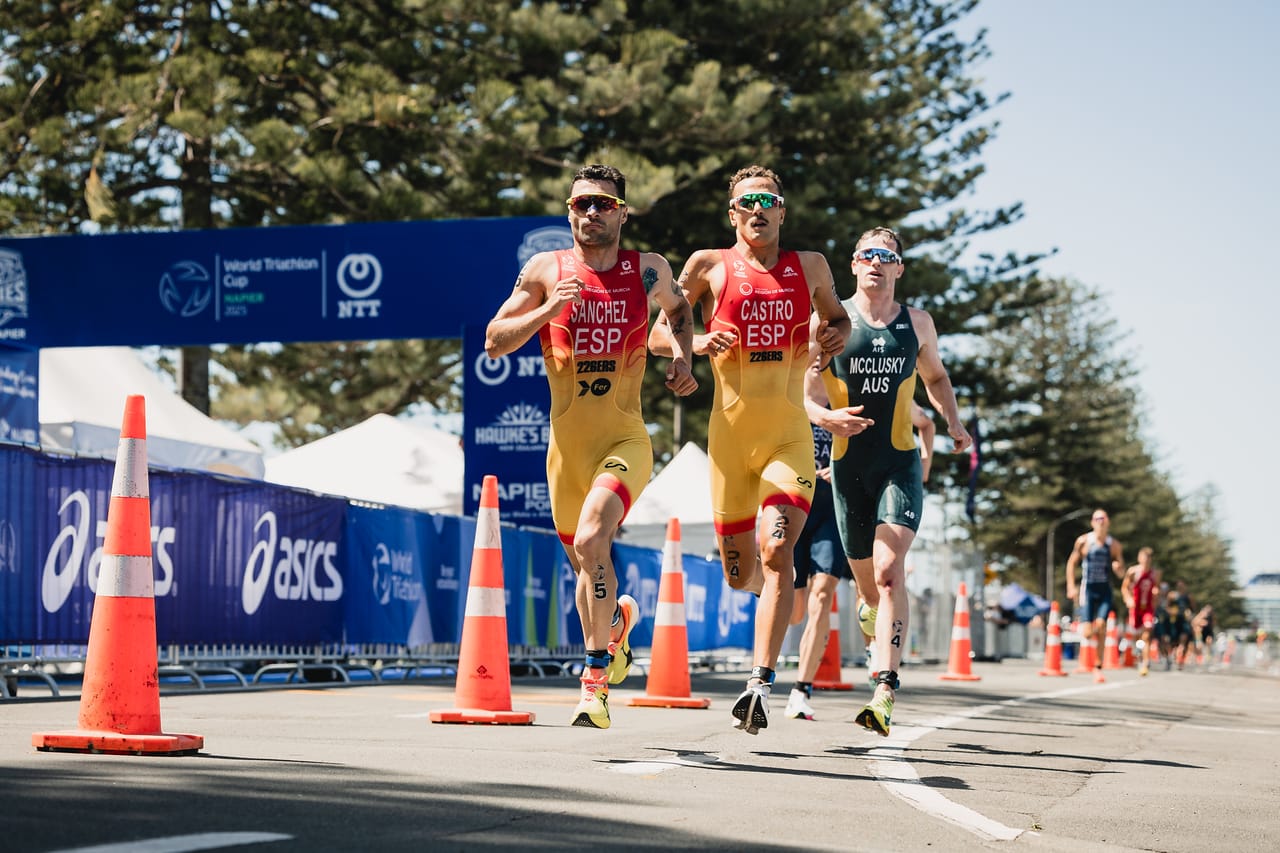
Indeed, when Mercer jumped, it briefly looked as if he might steal the win. But Castro Fajardo, nicknamed “the grandfather” by younger rivals—and who jokingly calls himself “Peter Pan”—had one last burst. With 300 meters left, he shifted gears, lengthened his stride, and flew past Mercer to break the tape. The margin: just two seconds, a fitting reflection of a race in which every meter mattered.
A Podium for McClusky and an Aussie Breakout
Though not quite matching his elation from last year, Callum McClusky backed up his 2024 gold with a hard-earned bronze. “I’m probably not as happy as last year,” he admitted, “but I was happy to back up with a podium again.” He also praised Napier’s warm welcome. “It’s a lovely place. I really like Napier. It’s been really good to me—I might have to bring the missus and move here!”
For Mercer, the silver was a breakthrough in only his third World Cup appearance. “First World Cup podium and first race of the year, so I’m stoked,” he said. “I pushed hard out there today, all the way to the line. It was a huge effort but I’m super happy.” Having led from the swim, he showed formidable run prowess as well, suggesting a bright future on the elite circuit.
Other Aussies added depth to the day’s success: Luke Willian came 8th, Luke Schofield 11th, twin brother Jayden 16th, and Jack Crome—fresh off that impressive swim lead—finished 19th. Oscar Dart wrapped things up in 23rd, capping a promising team performance for Triathlon Australia.
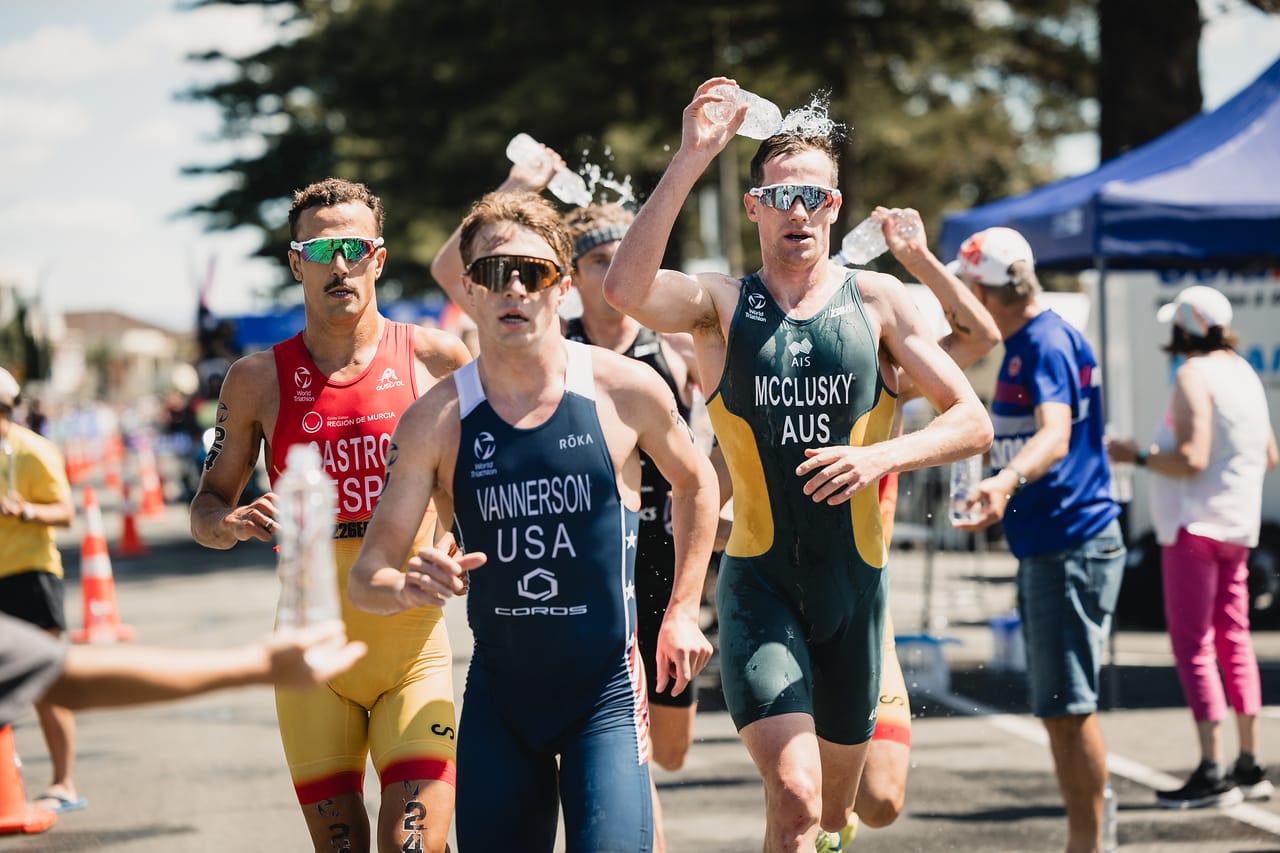
Final Thoughts
Castro Fajardo’s victory signaled a return after nine months away from competition. Training under five-time world champion Javier Gómez, he has often alternated between brilliance and subpar results, but in Napier, his pacing and tactical smarts shone through. Bitados, meanwhile, will wonder what might have been without that ill-timed SRAM shifting glitch. The race’s wide-open midsection might have looked very different had the Greek star’s chain not slipped.
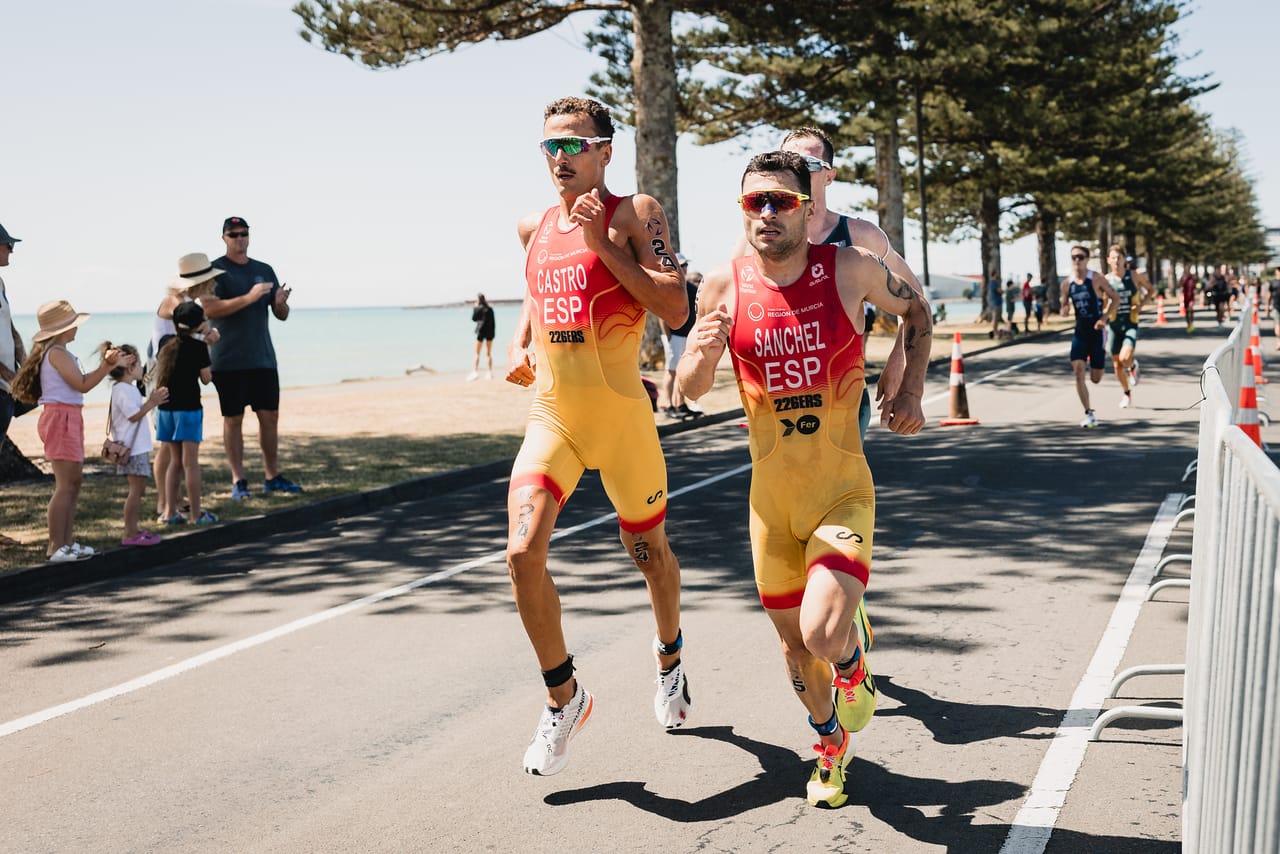
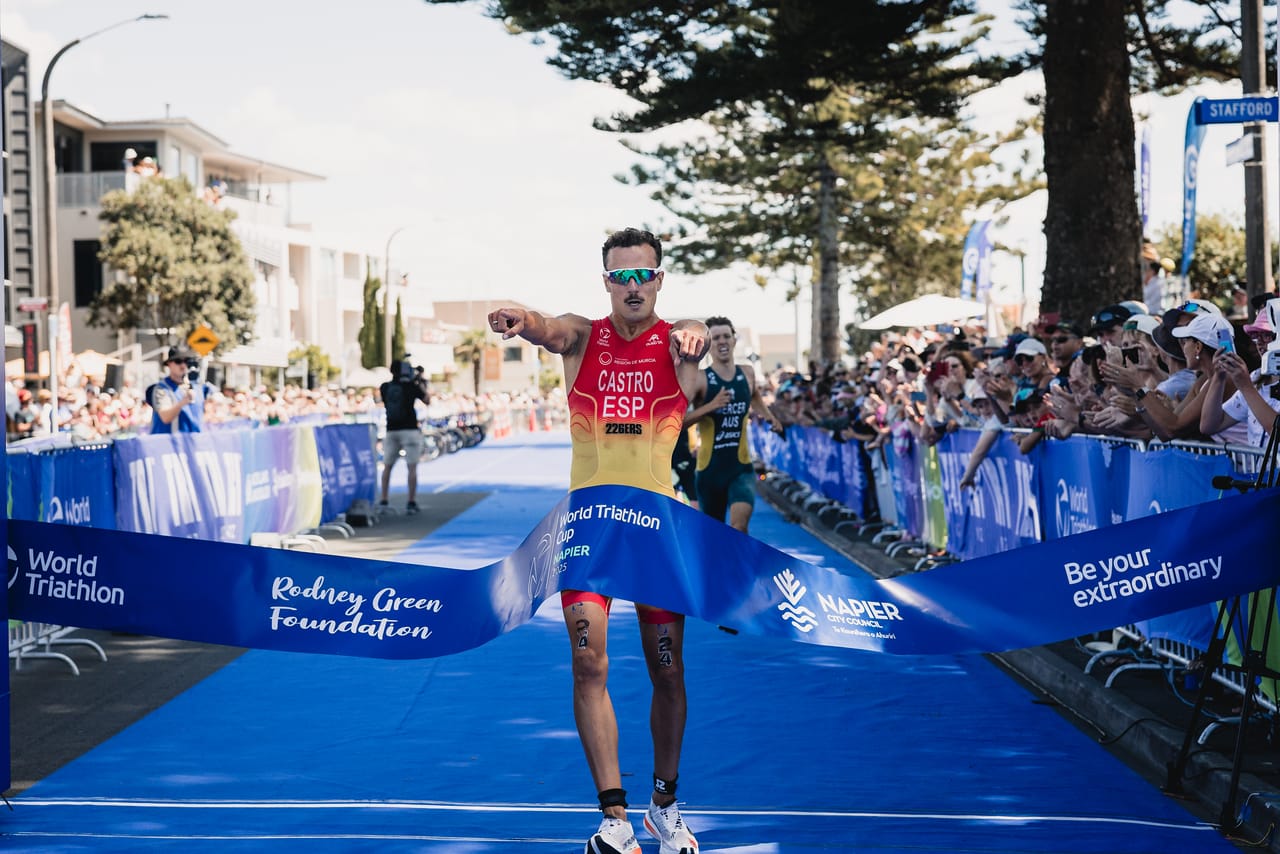
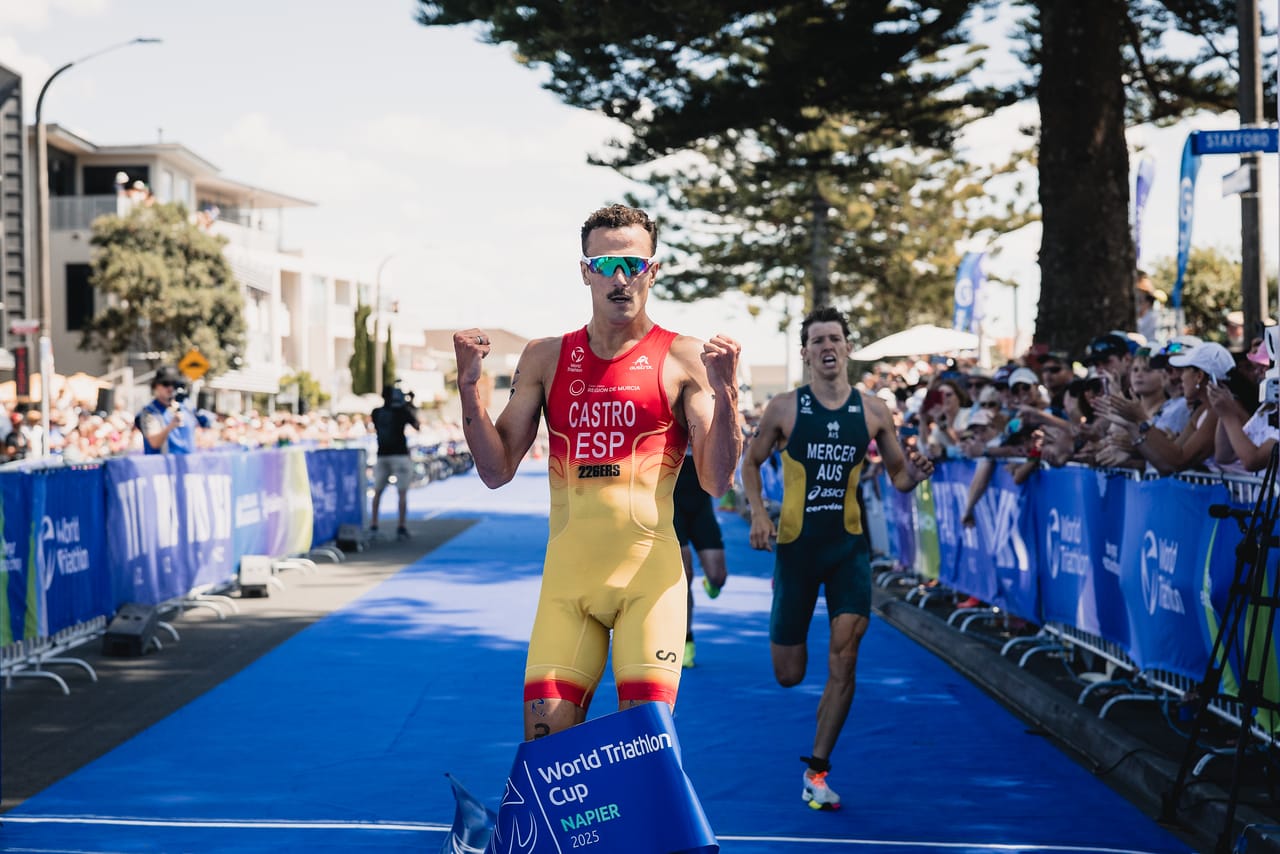
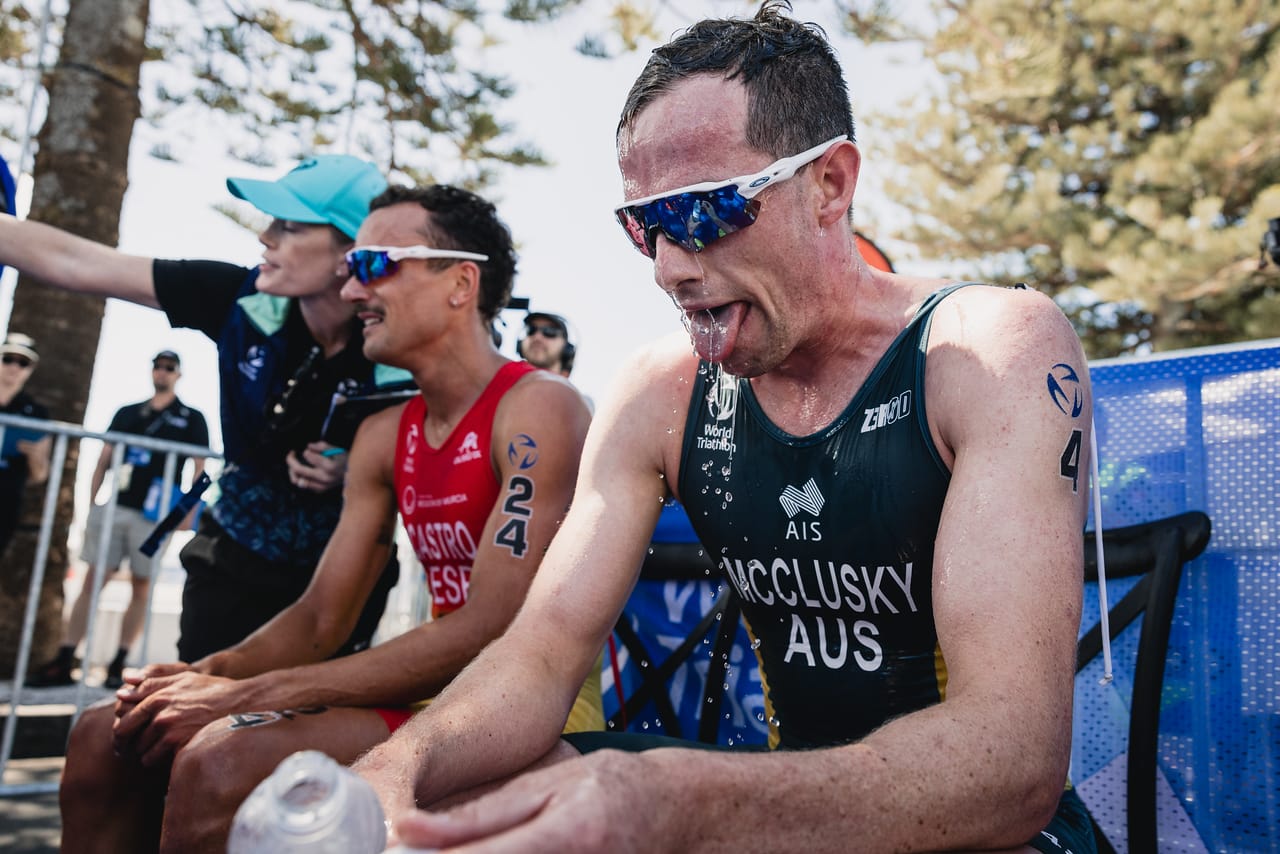
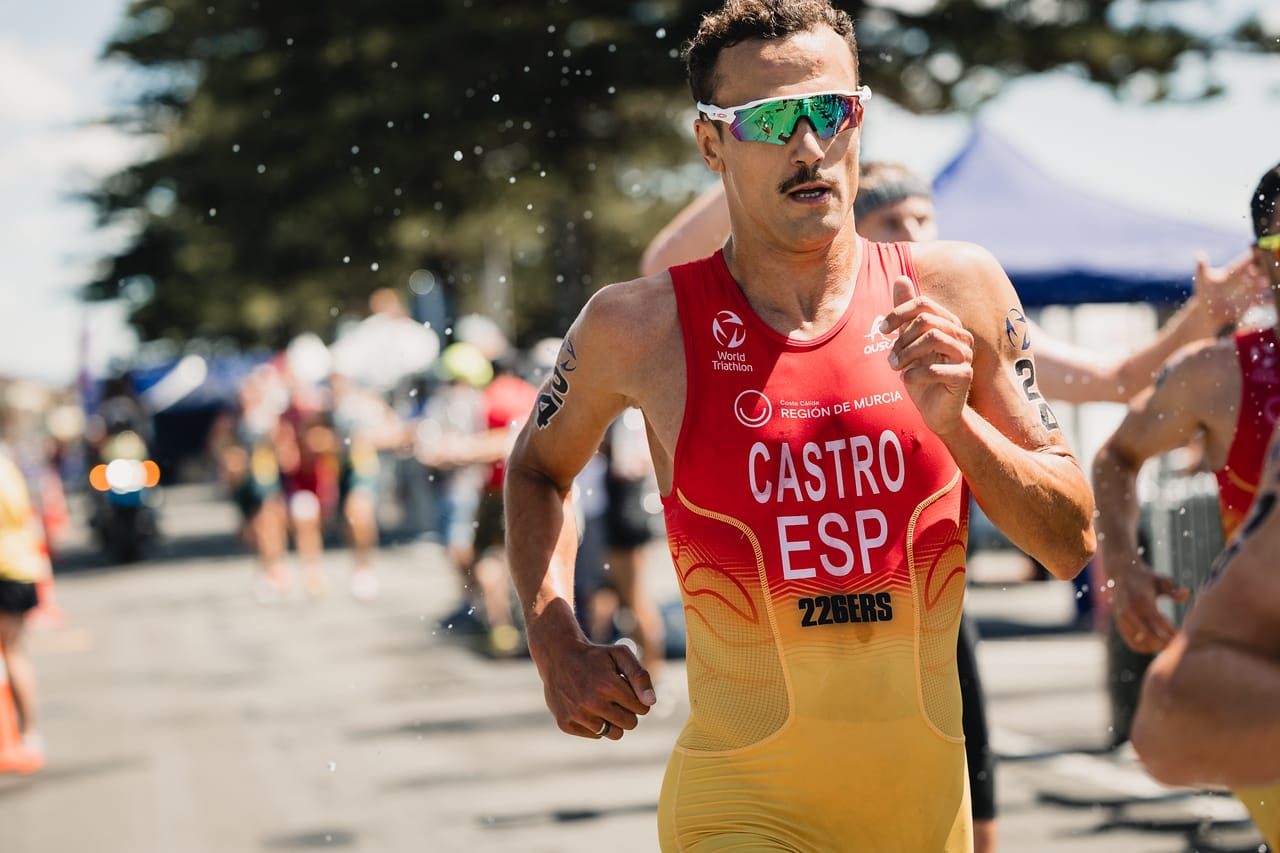
Regardless, the men’s season opener reinforced how one fleeting mistake or a perfectly timed surge can dictate an entire outcome. In Napier, the Spaniard’s experience and calm under pressure proved just enough to outlast a pair of hard-charging Aussies. Meanwhile, Mercer’s emergence and McClusky’s consistency underline the strong, growing depth in Australian men’s triathlon.
| Pos | First Name | Last Name | Nation | Total Time |
|---|---|---|---|---|
| 1 | David | Castro Fajardo | ESP | 00:50:29 |
| 2 | Brayden | Mercer | AUS | 00:50:31 |
| 3 | Callum | McClusky | AUS | 00:50:32 |
| 4 | Roberto | Sanchez Mantecon | ESP | 00:50:36 |
| 5 | Reese | Vannerson | USA | 00:50:36 |
| 6 | Tjebbe | Kaindl | AUT | 00:50:48 |
| 7 | Tayler | Reid | NZL | 00:50:50 |
| 8 | Luke | Willian | AUS | 00:50:57 |
| 9 | Sullivan | Middaugh | USA | 00:50:58 |
| 10 | John | Reed | USA | 00:51:00 |


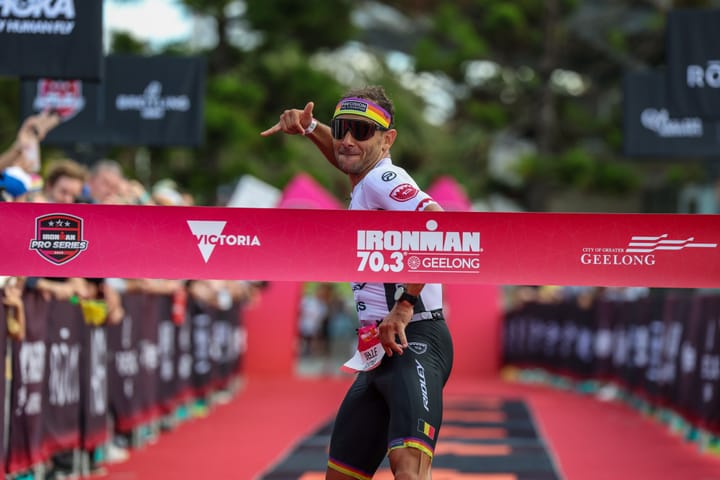
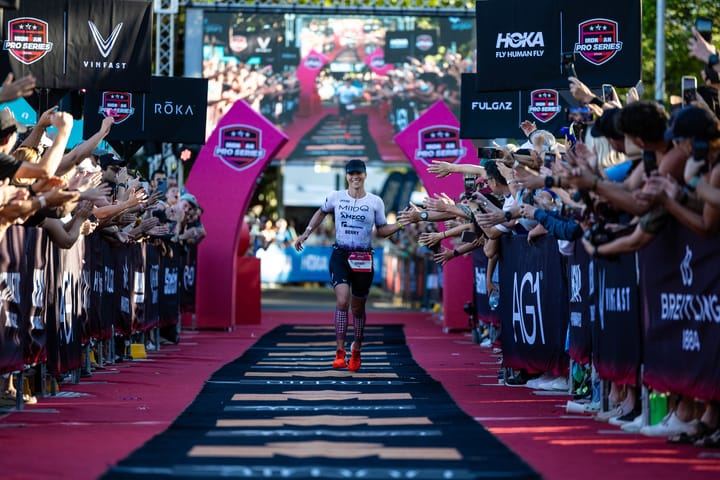
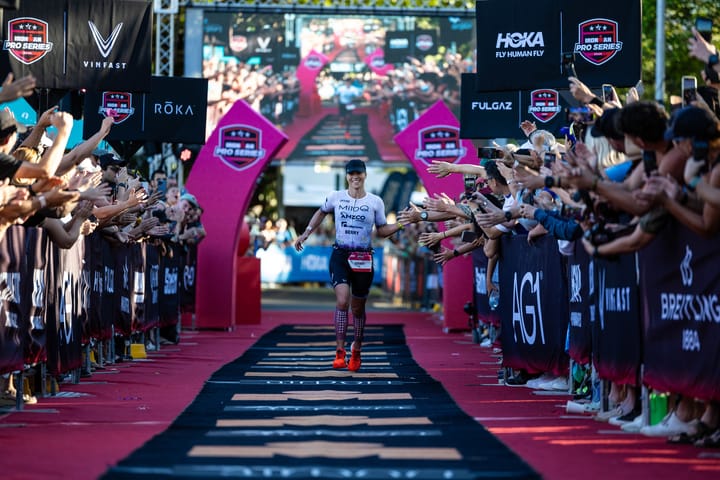
Comments ()